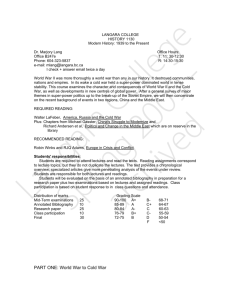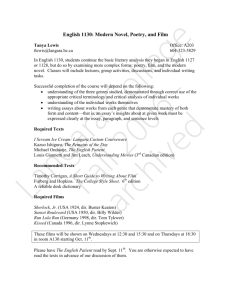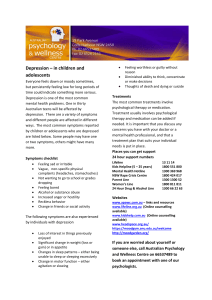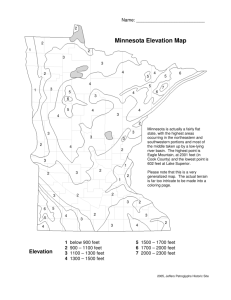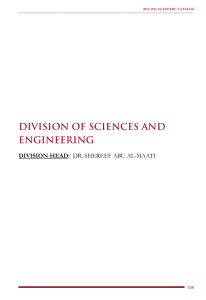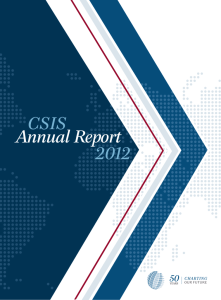CSIS 1300 - Course Outline
advertisement
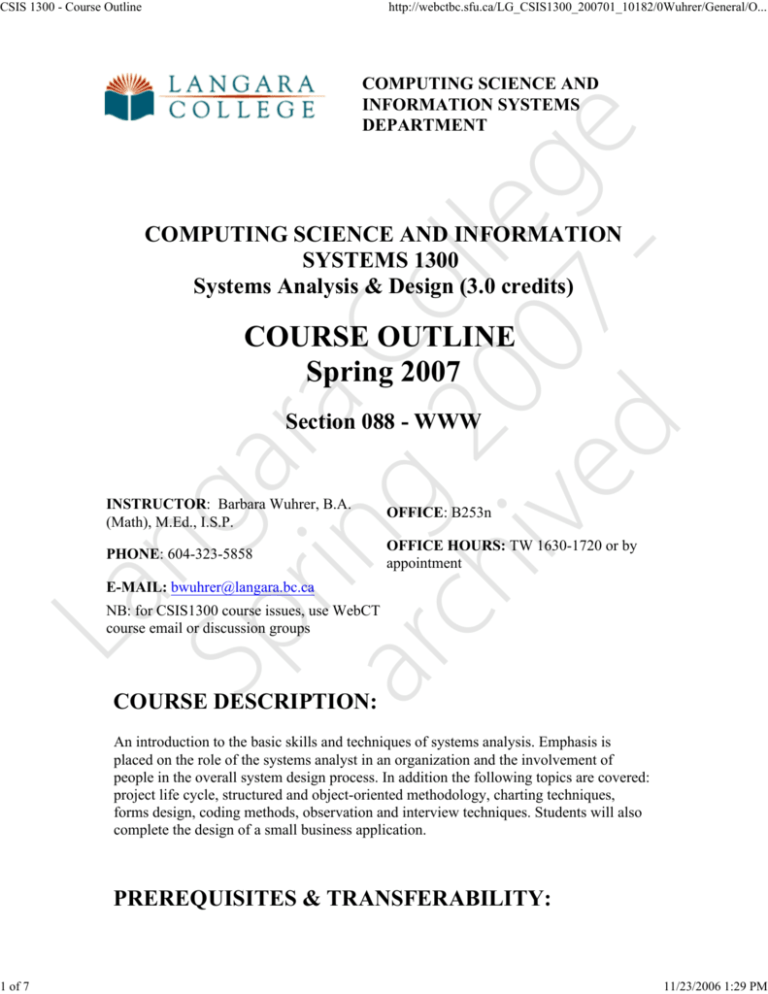
CSIS 1300 - Course Outline http://webctbc.sfu.ca/LG_CSIS1300_200701_10182/0Wuhrer/General/O... La n Sp ga rin ra ar g Co ch 20 lle ive 07 ge d - COMPUTING SCIENCE AND INFORMATION SYSTEMS DEPARTMENT 1 of 7 COMPUTING SCIENCE AND INFORMATION SYSTEMS 1300 Systems Analysis & Design (3.0 credits) COURSE OUTLINE Spring 2007 Section 088 - WWW INSTRUCTOR: Barbara Wuhrer, B.A. (Math), M.Ed., I.S.P. OFFICE: B253n PHONE: 604-323-5858 OFFICE HOURS: TW 1630-1720 or by appointment E-MAIL: bwuhrer@langara.bc.ca NB: for CSIS1300 course issues, use WebCT course email or discussion groups COURSE DESCRIPTION: An introduction to the basic skills and techniques of systems analysis. Emphasis is placed on the role of the systems analyst in an organization and the involvement of people in the overall system design process. In addition the following topics are covered: project life cycle, structured and object-oriented methodology, charting techniques, forms design, coding methods, observation and interview techniques. Students will also complete the design of a small business application. PREREQUISITES & TRANSFERABILITY: 11/23/2006 1:29 PM CSIS 1300 - Course Outline http://webctbc.sfu.ca/LG_CSIS1300_200701_10182/0Wuhrer/General/O... No prerequisites La n Sp ga rin ra ar g Co ch 20 lle ive 07 ge d - CSIS 1300 transfers to numerous institutions; please see http://www.bctransferguide.ca/ 2 of 7 REQUIRED TEXTBOOKS AND RESOURCES: Systems Analysis and Design; 6th Edition; Shelly, Cashman & Rosenblatt; Course Technology; ISBN: 0-619-25510-2 Course website @ https://portal.bccampus.ca/ Flowcharting software (e.g. MS Visio, Chartist or MS Word, etc.) RECOMMENDED READINGS: (on web or in Langara’s Reference Library): www.scsite.com/sad6e: Student downloads including data files and student online companion (forms library, learning games and other resources) Systems Analysis and Design; 6th edition; Kenneth E. Kendall and Julie E. Kendall, Prentice Hall; ISBN 0-13-145455-2 COURSE OBJECTIVES: Upon successful completion of Computing Science and Information Systems 1300 (CSIS 1300), the student will: understand the methods and techniques used in systems analysis and design, including how to apply CASE and other design software in solving business systems problems understand and have experienced the fundamentals involved in converting manual systems to computer based systems LEARNING OUTCOMES: Depending on the student’s effort and mastery of the subject, he/she will: understand and be able to discuss the impact of information technology on business operations be able to utilize a variety of techniques in analyzing an organization’s information 11/23/2006 1:29 PM CSIS 1300 - Course Outline http://webctbc.sfu.ca/LG_CSIS1300_200701_10182/0Wuhrer/General/O... La n Sp ga rin ra ar g Co ch 20 lle ive 07 ge d - systems understand the steps involved in designing and developing a business information system and participate in and contribute significantly to that process within an organization 3 of 7 ASSIGNMENTS/EXAMS: All assignments must be submitted via the course website on or before the due date. All assignments, whether late or not, must be submitted by the last day of classes otherwise an incomplete (N) grade will be automatic (extraordinary exceptions must be arranged with the instructor). You are expected to participate in all assigned online discussions and will be graded for participation. The midterm and final exams will be conducted online at a date and time to be announced by the instructor (for the midterm) and by the Langara College Scheduling Department (for the final). Exams must be written solely by you and may be written at a place of your choosing, e.g. at home, in a College computer lab, in a public library, etc. A high speed connection is highly recommended in order to complete exams within the required period of time. Missed exams will not be rescheduled and will be assigned a mark of 0 unless for serious medical reasons and supported by a doctor's certificate (NB: College Health Services will not provide certificates for this purpose); the student must notify the instructor immediately of the reason for missing the exam. The midterm will be held in week seven and the final within the College’s final exam week, actual date to be announced three or four weeks prior to exam week. It is the student's responsibility to be available to write both exams. Please see http://www.langara.bc.ca/policies/F1004.pdf for College policy on cheating and plagiarism. ASSESSMENT AND EVALUATION: Assignments 35% Participation in Discussions 20% Midterm Exam 20% Final Exam 25% 100% Grading System: A+ 90+ B+ 76-79 C+ 64-67 D 50-54 A 85-89 B 72-75 C 60-63 F <=49 A- 80-84 B- 68-71 C- 55-59 11/23/2006 1:29 PM CSIS 1300 - Course Outline http://webctbc.sfu.ca/LG_CSIS1300_200701_10182/0Wuhrer/General/O... La n Sp ga rin ra ar g Co ch 20 lle ive 07 ge d - COMPUTING SCIENCE AND INFORMATION SYSTEMS DEPARTMENT: 4 of 7 It is the aim of the Computing Science and Information Systems Department of Langara College to promote throughout each course the mastery of core skills such as reading and reading comprehension, writing fluency, verbal articulation and math development. These core skills will be practiced by means of student presentations and/or participation and will be evaluated on submitted work. Critical thinking and problem solving exercises will be encouraged at every opportunity. For more information about the Computing Science and Information Systems Department, please contact Fred Parvaz, Department Chair, at 323-5853. Information regarding class cancellations will be posted on the web and in the following designated areas only: outside Financial Aid Department in “B” Building Information Booth (main foyer) “A” Building Notices will not be posted outside classroom doors As stated in the College Calendar and according to College policy, students are expected to attend all classes, lectures, laboratories, workshops, seminars, and practicum commitments, and be available to write final examinations where and when scheduled during the examination period. Students who fail to attend the first three classes of a course may have their seats in that course given to other students regardless of previous permission to register. Students are reminded to refer to policies and procedures related to: Code of Academic Conduct, Improper/ Disruptive Behaviour, Appeal of Final Grades, Concerns Related to Instruction, Attendance, etc. found in the College Calendar and in the current Student Handbook. TOPIC OUTLINE / COURSE SCHEDULE: (Schedule and topics subject to change) Week Topic Reading Assignments 11/23/2006 1:29 PM CSIS 1300 - Course Outline http://webctbc.sfu.ca/LG_CSIS1300_200701_10182/0Wuhrer/General/O... 1 Course orientation and objectives, introduction to systems analysis and design, information systems components, how business uses information systems, system development tools, techniques and methods, the systems development life cycle, the information technology department and systems analyst. 2 Systems planning: strategic planning, planning IS projects, evaluation of systems requests, feasibility, priority, steps in preliminary investigation; Internet resource tools: an Internet Chapter 2, Toolkit research strategy, search engines, subject Part 6 directories, the invisible web, Internet communication resources, information technology resources. 3 Systems analysis: requirements modeling, systems development methods: Joint Application Development (JAD) and Rapid Application Development (RAD), modeling tools and Chapter 3, Toolkit techniques: CASE, functional decomposition Part 1 diagrams, unified modeling language (UML), system requirements checklist, scalability, total cost of ownership (TCO), fact-finding techniques: interviews, observation, questionnaires, research, documentation. 4 Systems analysis: data and process modeling, data flow diagrams, data dictionary, process description tools, logical versus physical models. 5 Systems analysis: data flow diagrams continued; Chapter 4 CASE tools: terms and concepts, integrated (continued), development environments, CASE tool examples, Toolkit Part 2 future trends. 6 Systems analysis: development strategies, impact of Internet, outsourcing options, in-house development options, cost-benefit analysis, software acquisition, system requirements document, transition to systems design, La n Sp ga rin ra ar g Co ch 20 lle ive 07 ge d - Chapter 1 5 of 7 Chapter 4 Chapter 5, Toolkit Part 3 11/23/2006 1:29 PM CSIS 1300 - Course Outline http://webctbc.sfu.ca/LG_CSIS1300_200701_10182/0Wuhrer/General/O... La n Sp ga rin ra ar g Co ch 20 lle ive 07 ge d - prototyping. 6 of 7 7 Systems design: output and user interface design, types of output, printed and screen output, human-computer interaction, input design concepts, designing data entry screens, source documents, input control. 8 Systems design: data design, data design concepts and terminology, database management systems including web-based database design, Chapter 7 entity-relationship diagrams, overview of normalization, using codes, database models, data storage, access and control. 9 Systems architecture: considerations in planning the architecture, client/server architecture, impact of Internet, online vs batch processing, Chapter 8 introduction to network models and topologies, system management and support tools, the system design specification. 10 Systems implementation: software quality assurance, structured vs object-oriented application development, structured development tools, object-oriented terms and concepts, tools. Chapter 9, Toolkit Part 5 11 Systems implementation: coding, testing, documentation, installation and evaluation, operational vs test environments, training, data conversion, system changeover, post-implementation evaluation, final report. Chapter 9 (continued) 12 Systems operation, support and security: user support activities, maintenance activities, managing systems support and performance, system security, backup and disaster recovery, system obsolescence, strategic planning for IT professionals. Chapter 10 Chapter 6 11/23/2006 1:29 PM CSIS 1300 - Course Outline http://webctbc.sfu.ca/LG_CSIS1300_200701_10182/0Wuhrer/General/O... Toolkit Part 4 La n Sp ga rin ra ar g Co ch 20 lle ive 07 ge d - 13 Project management tools: project planning, project scheduling, charting techniques, project monitoring and control, reporting, project management software, keys to project success. 7 of 7 11/23/2006 1:29 PM
